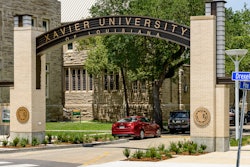One on One With Charles Greene
The new White House Initiative executive director breaks down
the unique needs of Black colleges
By David Pluviose
Charles Greene
Title: Executive Director, White House Initiative on HBCUs
Previous Positions: Director of Community and Economic Development in the office of Sen. Rick Santorum, R-Pa.; Member, Cheyney University Council of Trustees; Asst. V.P. for Development, Howard University
Education: BA, Virginia Union University
In an era of declining state funding for higher education, the role federal appropriations play in maintaining and developing the academic programs of historically Black colleges and universities is as critical as ever. Charles Greene, the new executive director of the White House Initiative on HBCUs, is tasked with overseeing the board that advises the president and the U.S. secretary of education on how best to support and strengthen these institutions. He recently spoke with Diverse about his new role.
DI: What’s the main function of the White House Initiative on HBCUs?
CG: There are designated agencies within the federal establishment that we work closely with to maximize participation by HBCUs in grant opportunities, contract opportunities and cooperative agreements as well as sometimes some non-monetary stuff like expanded recruitment by these agencies, technical assistance, exchange programs and stuff that really then gets to be non-financial, but supports this idea of building capacity within HBCUs. The other aspect of that is we have a strong responsibility for creating private sector collaborations with HBCUs.
DI: Though originally launched under President Carter, this HBCU initiative has gone through changes under successive presidents. In what way did President Bush change the initiative’s scope?
CG: What he attempted to do was to strengthen the process of agencies providing plans as to how they are going to interact with HBCUs over the course of the fiscal year. And then associated with that, provide reports of their activities at the end of the fiscal year so that we could; one, know what they did, and two, evaluate whether those accomplishments were consistent with the plan. And he also interjected the Office of Management and Budget in the process. So it’s at least a point of contact for budgets. OMB has a responsibility to scrutinize whether they have prepared a plan.















